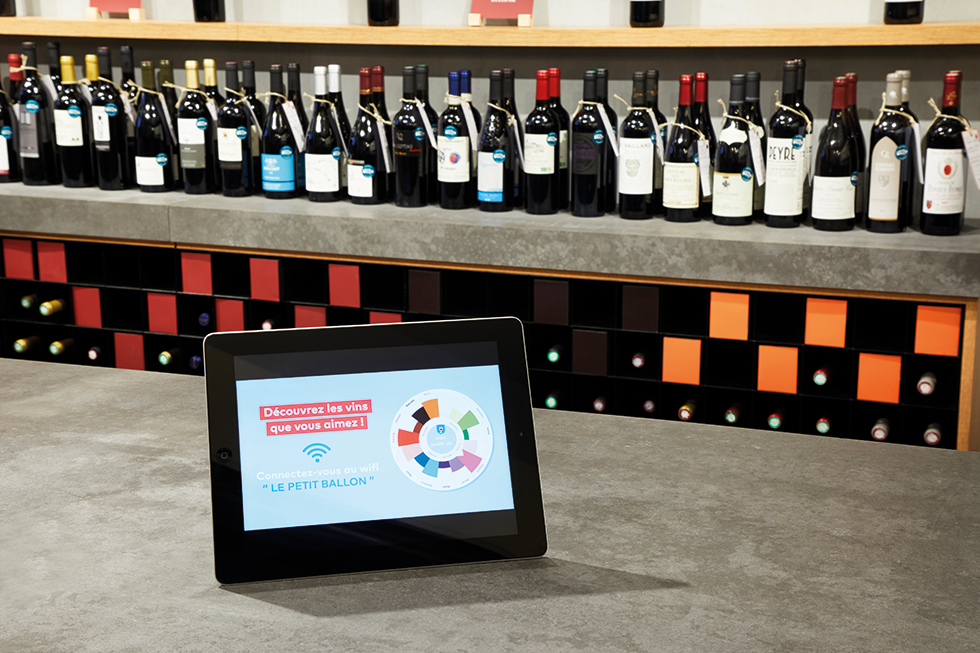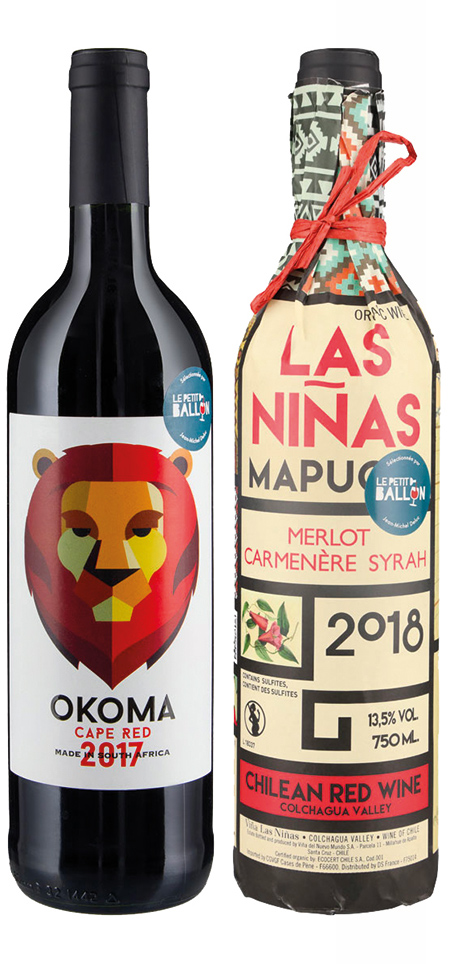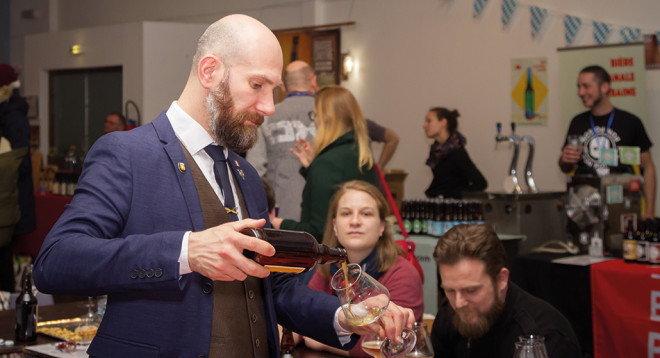Young, from 25 to 35, I am the Generation Y, or very young, 15 to 25, I am Z. Born from 1985 I am called “Millenial”. I live digital and mobile. I am subject to all expertises and envy, but who am I for the winegrowers, houses, breweries and spirits giants?
By Valérie Massot Germe

The millenials are over 17 million in France, 92 million in the US and in 2020 half of the global population will have their age. The Ys, the elders also called “sellennials”, and the Zs have in common to have grown up during the crisis and with the digital environment. They are smart and alternative, and Internet has a great influence on their behaviour and consumpion modes. Economically unavoidable and different, they are not always easy to apprehend for manufacturers of alcoholic beverages without forgetting that we only communicate with them if they are over 18 years old. According to the trends expert Vincent Grégoire, Nellyrodi director of the consumer trends & insight pole, the youngest are ultra passionate and capricious; they need to exist and to assert themselves. They are looking for experiences and stories they will love or dislike, no half measure! Transgression and disruption do not scare some who may have a very strong connection with alcohol. For the Ys, more reasonable once they are established, sense and moral value take over. They need to go back to the source, participate and exchange to be able to better choose and consume intelligently. Very demanding, they can become extremists and speak only about natural, vegan or “no alcohol”.

If wine, still according to Vincent Grégoire, is not yet transgressive enough for these millennials (but can it really be?), the world of spirits has already taken the lead in France and elsewhere. Whisky, anis-based alcoholic beverages, white spirits and rum account for more than 80% of sales of spirits in France but they are consumed differently. Young people prefer them in cocktails in these trendy places that are themed bars, for moments of conviviality and sharing. And when it is the bartender or mixologist's turn he also needs alternative products; Cognac, Armagnac, Calvados and other spirits or traditional spirits such as sake are given back their letters of nobility. Cocktails with iconic raw materials like Grand Marnier for example and that is a way to give a twist to the classics, to make desirable by reinterpreting, in short to seduce the millennials! Creation of new brands and commercial products‒Lidl, Carrefour and Aldi launch into the flavoured rums‒but also new Pastis, gin recipes and other revisited classics or forgotten aperitifs are revived in family houses taken over by the younger generation. And why not dare to mix beer and spirits? The Alsatian brewery Licorne creates 'Spirit', a beer with aromas of gin (cranberries, citrus and lemongrass) for “young adults who love novelties”. Or Kronenbourg who, after revisiting the caipirinha, continues its trip around the world of cocktails with a version of Moscow mule (ginger beer and vodka) in its range Skoll.
On the wine side, the lines also move, not just on the labels. Peripheral products arrive and British journalist Robert Joseph does not hesitate to say to the winemakers: “Open your mind to the commercial potential offered by trends that might not appeal to you personally”. A new business and a way for wine makers to be curious, openminded and without bias to millennials, their future customers. The Gik Live's blue wine, the Frosé iced cocktail version of the rosé ... and in some countries like Canada, with the legalization of cannabis we are speaking about its use in some alcohols including wine. But let's not go too fast and remain moderate!

Other experiences millennials like: those provided by technology. In addition to the tools to scan a product, compare, buy and evaluate like the Vivino or TwilTheWineILove apps, glasses, bottles and labels become smart. Pernod Ricard's connected glass allows you to order your cocktail from your smartphone. Augmented reality makes the labels of the brand '19 Crimes' of Treasury Wines speak and tell the story of the founding of Australia as an English penal colony ... The cuvée 'Du Kif' by MDCV in Provence offers its 'digging' experience: the bottle empties and bubbles appear on its inner wall. And why only talk about bottles? Nomadism, mobility, ecology or commitment lead to other containers such as the bag-in-box or the can. Since 2011, the Bordeaux-based company Cacolac has been developing know-how in aluminum can; the French market is still almost non-existent, but sales of canned wine in the USA are increasing quickly (+43% between June 2017 and June 2018 according to BW 166). A sign !

Young people and their elders go to supermarkets for their purchase of alcohol at minimum cost but it is clear that they are turning towards other channels. We know the the Ys are in search of meaning, back to forgotten things, (re)discoveries but told differently; they are 100% digital but do not forget the notions of conviviality and sharing. Shopping on the web yes, but not any old how and isn't it just that 'cool' to go and buy a good bottle at a wine store or find a wine at a winemaker?
When Martin Ohannessian starts with Jean-Michel Deluc, former head sommelier of the Ritz, the adventure of Le Petit Ballon on the web in 2011, would he have imagined to reach a 16 million euros turnover seven years later? Their motto: to offer the wine that suits me well in a subscription box. Each person defines his oenological profile and receives each month his two personalized bottles with product sheet and a 24-page gazette. All this remaining credible - Jean-Michel selects all the wines - funny and offbeat, and it works: 70% of Le Petit Ballon customers are under 40 years old! One of their millennial successes: Okoma, a red wine from South Africa, and Makena, its white version created with Marianne Wine Farm, 300,000 bottles in red sold since 2013. In 2019, Le Petit Ballon also has two Parisian shops and a development towards spirits and beer to play on the aperitif market.

With this ultra connected generation, winegrowers, brewers and spirits manufacturers have had to revisit their communication mechanics and learn to speak the millennials' language on social networks, Snapchat, Pinterest and Instagram to name only their favorites. And the digital environment becomes a great tool that brands use to convey culture, tradition and taste of wine or to promote their houses and heritage by going beyond the products in a few simple words and colorful images. Examples: Veuve Clicquot's funny podcasts or Freixenet's Instagram in pink and blue - it's Me for their range of French wines dedicated to millennials. But who speaks the best of it? No doubt the Ys and Zs themselves. They are 24% to share their tasting reviews online (Sowine Barometer / SII 2018). An obvious fact for Tristan Frangi and Grégoire Hervé, co-founders of the website supercaves.fr, who have been sharing for a year with their 7,115 followers on Instagram the wines they discovered in Parisian 'super wine shops'. "We are talking about wine in a cool mode, we take our buddies to the wine merchants, we do not want to consume any old how”. #Ishare!

When Bernard Magrez created in 2017 his brand Bleu de Mer, a ays d'Oc rosé for the young generation, he already imagined how this signature could find its place in the millenials' universe. Blue south seas, old sailing ships, iconic cars of the young culture and surf board for already eight references in the three colours and nearly one million bottles sold, before an even more exotic cuvée to come ...
#bleudemer_
The Lab was conceived by Vin & Société as a think tank on the issue of cultural and heritage transmission to the Generation Y. After exploring the field of social networks, Vin & Société chose in 2019 the cinema with the launch of a call for projects “Generation Y and wine” with young filmmakers. Edouard Azoulay and Antoine Sfeir's “Syrah séduction” fiction and Serena Porcher-Carli and Vincent Zanetto's documentary “La vie sous le bouchon [Life under the cork]” were rewarded and presented at the Cité du Vin museum in Bordeaux on March 27th. They will be in the selection of the films in competition at the next Oenovideo International Film Festival.

How do you analyze the millenials' consumption?
First of all, I would like to point out that a first consumption with the family, in an appropriate environment where we drink in moderation, is very different from that between peers where risk-taking is valued. IN his family, the young learns that moderate consumption adds to the pleasure of being together and will then look for quality products; with his "buddies", he goes very quickly into excesses. In my tasting workshops (as from 16 years old if they are with their parents), I notice that 18/25 year olds are more and more interested in discovering things that have taste. The beer yes ... since it is trendy but they no longer want drink anything. It is all about education and discovery of the senses.
What types of beers are they looking for and are there millennial targeted products?
Though the often tasteless “industrial beers” are still what the young people consume in priority‒it's not expensive and it's drunk quickly‒I see more and more who let themselves be tempted by more expressive and quality beers , even if they are more expensive! The development of wine shops and specialty bars is important for many. They first look for the 'wow!' effect in terms of gustatory sensations. Beers for millennials? Yes of course! Industrialists and marketers know how! Take for example the so-called “girl beers” made with fruity, sweet, easy to drink tastes, flavored beers or those with catchy marketing names to make you smile, high-alcohol beers sold in 50 cl can in supermarkets ... But nothing beats the advice they can find in a specialized wine shop, even if they have to pay for it too!
How do you speak to these millennials as a sommelier?
I first focus on responsible drinking and how to appreciate the quality of a beer. I teach them during my workshops how to taste, I give them my vision of things about a certain know-how, how to behave and thus how to live with others.
“The one who knows how to taste, does not drink in the wrong way anymore but tastes secrets”.
Interview by Valérie Massot Germe